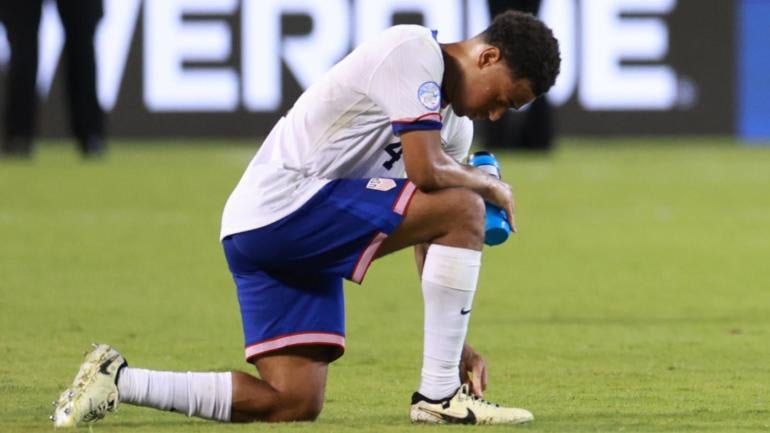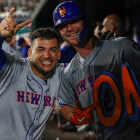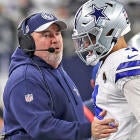
The U.S. men's national team may have entered the Copa America with high hopes, but after crashing out in the group stage, the early exit forces many questions about the direction of the program with less than two years to go until the 2026 World Cup.
Many have fairly pointed fingers towards head coach Gregg Berhalter, who first took the job in 2019 and took the team's best-ever talent pool to the 2022 World Cup, fostering the growth of up-and-coming players after a previous generation of players failed to qualify for the 2018 tournament. Berhalter and company have made little to no progress since that point, though, which is troubling considering the team's aims in 2026 -- the head coach himself has name-dropped a semifinal berth in two years' time and wants "to do something that no U.S. team has done before."
Berhalter's time in charge of the national team might be up, but there's little reason to suggest one simple coaching change will lead the USMNT straight back to the ambitious path they are charting for themselves. The USA player pool may be as talented as it's ever been but it remains imperfect, which will force the head coach -- whoever they will be -- to get the best of a group that has some noticeable weaknesses. Balancing expectations and realities will be no easy feat for the players and staff, but it is clear that the USMNT can do much better than they did at the Copa America. The head coach will not be the only one bearing the responsibility to make it happen -- the players and U.S. Soccer's sporting staff will be just as crucial to make it happen.
Here's a look at the USMNT's trouble spots with the countdown to the 2026 World Cup officially underway.
Sputtering attack
Berhalter was asked post-match after the USMNT's 1-0 loss to Uruguay on Monday if the team has made much progress since the 2022 World Cup, to which he replied in part: "Most games, we have higher expected goals than the opponent." That is not factually incorrect, doing so in 10 out of 14 games since Berhalter returned to the job last September. It's important to note the opposition the USMNT played against, though -- the group averages a FIFA ranking of 46, meaning the expectation for the U.S. is to breeze through a majority of those opponents.
It does not help Berhalter's case that the attackers at his disposal are fairly inconsistent. Christian Pulisic is the gold standard with five goals during that stretch, an impressive haul for the national team that matches his 16-goal outing for AC Milan last season. He and Timothy Weah have a burgeoning double-act brewing as the wide players in the USMNT's attack but the rest of the group has struggled for form.
The best news out of the doomed Copa America run is that Folarin Balogun is building a case as the team's starting forward, scoring two goals after going on an eight-month cold streak for the national team and scoring just five goals for AS Monaco last season. Ricardo Pepi, his main understudy, has been wasteful when he plays, while the likes of Brenden Aaronson, Haji Wright and Josh Sargent have not been trusted with enough minutes to sink or swim on the international stage.
That said, the onus was on Berhalter to deliver a strong attacking philosophy even with the players at his disposal. The USMNT were wasteful in their 2-0 win over Bolivia to open the Copa America, while a defensive tactical switch did not help in their 2-1 loss to Panama. Against Uruguay, the team mustered just 0.49 expected goals from eight shots, reflecting their struggles against top teams.
Depth is not a strength
The USMNT's best 11 players have a lot of promise, which is why the team boasts plenty of potential when they are at full strength. Things take a dramatic turn when it's time to call upon the bench, though, with the quality of their bench failing to match the talent that is usually earmarked for starting spots.
While the state of the forward battle between Balogun and Pepi is emblematic of this problem, it is far from the only example. The U.S. midfield has been in disarray since the 2022 World Cup, in large part because Tyler Adams spent much of that time on the sidelines with a hamstring issue. Berhalter plugged in several players to try and restore balance in Adams' absence, but none of Yunus Musah, Johnny Cardoso or Luca de la Torre were able to crack the starting lineup. Adams then returned to the lineup for the Copa America, but a combination of rust, minute management and unimpressive overall displays from the U.S. meant the midfield was still a problem this summer.
The same rings true in defense, where Berhalter is still rolling with 36-year-old center back Tim Ream. Surprisingly, he has not been wrong to do so -- while Chris Richards has earned a spot as Ream's partner, none of Cameron Carter-Vickers, Miles Robinson or Mark McKenzie have proven themselves worthy of the start. Carter-Vickers was the only one of the trio to play any serious minutes at the Copa America but his 45-minute shift against Panama was startling. He was switched on to shore up the U.S. back line but instead was frenzied amidst Panama's constant attacks, nearly conceding a silly penalty in the process.
The lack of depth means that the U.S. starters feel locked in, even after unimpressive performances. In an ideal world, Gio Reyna's lack of playing time at the club level would matter but he's indisputably the best choice for his role as an attacking midfielder, while Weston McKennie's poor outings all summer could lead to a spot on the bench. That's not happening in the foreseeable future, though. While Reyna has still impressed for the national team despite his club situation, McKennie came off a strong season with Juventus but flamed out completely with the national team. It means at least some of the blame flying Berhalter's way is warranted because he has been unable to keep the players' levels high despite years of familiarity with them.
Hitting a plateau
The USMNT's problems are not Berhalter's alone, but there's a reason he's on the hot seat. The team's upward trajectory from 2019 to 2022 now seems to have plateaued, or perhaps even taken a downward turn.
They are still missing a statement win against a top 20 opponent, despite several chances to do so since Berhalter's return with friendlies against Germany, Colombia and Brazil and Monday's matchup against Uruguay. The U.S. have also squandered some games against more favorable opposition during that stretch, including last week's loss to Panama as well as a loss at Trinidad and Tobago in November. Berhalter's team responded poorly to adversity in a handful of those games, implying that his messaging has become stale and that the group is too comfortable with each other.
While it makes no surprise that Berhalter would advocate to stay in the job, it's troubling that most of the players might agree with him. "I see no issue with the direction we're heading," goalkeeper Matt Turner told Fox post-match. "When you have a fight like that on the pitch in every single game we're in in this tournament, it speaks volumes to how the manager prepares us. To be honest, we've been in positions to win in every single game that we played."
His characterization of events does not quite match the reality of the U.S. Copa America run, though. The USMNT were in cruise control but did little to make a statement against Bolivia, and against Panama, they were underprepared for the physicality of the game and then relinquished the game state by going defensive while down to 10 men. Against Uruguay, they were unorganized in attack despite needing multiple goals to go through.
The performances definitely demand a rethink, especially since there's little to suggest the core group of players will leave anytime soon. Perhaps it makes Ream, who is likely on his way out after important years of service to the USMNT, an appropriate choice to diagnose the team's areas of improvement with the World Cup less than two years away.
"We need more intensity from every single training session, demanding more from each other, as we've said in the past," he said, per Univision. "I think we need more guys who are willing to step forward and take over games. It's a fantastic group, as everybody knows. It's very, very close but sometimes, the intensity falls through the cracks … We just have to put our heads down and continue to work, continue to be humble enough to know that there are things that we can continue to improve [upon] every single day, every single training session … When we start to think that we're the finished product, guys are going to stagnate or just stay at the level that they're at instead of pushing on."
















